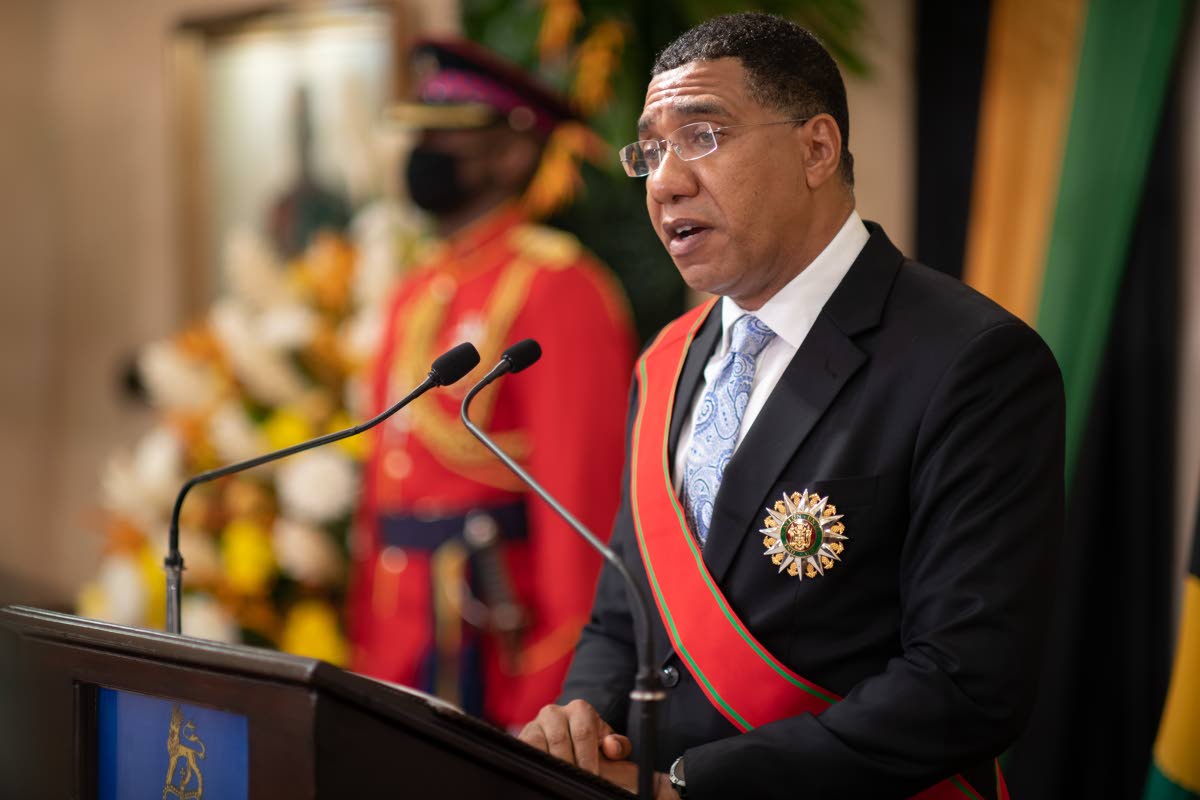(Jamaica Gleaner) With a single Caribbean country yet to receive any vial of the COVID-19 vaccine released a month ago, Prime Minister Andrew Holness says big countries are hoarding the precious medicine.
Wealthy countries have been engaged in surplus buying since the approval of at least two vaccines for widespread distribution as they have gobbled up more than half the doses that could come on the market by year end.
According to Duke University, high-income countries currently hold a confirmed 4.1 billion doses, upper middle-income countries possess 1.1 billion doses, and lower middle-income countries have two billion doses.
“Many high-income countries have hedged their bets by advance purchasing enough doses to vaccinate their population several times over,” Duke University researchers attached to its Global Health Innovation Center stated.
Holness rejected the attitude of the rich countries as prudent planning and affirmed they were engaged in hoarding.
“I think prudent planning would be to ensure that there is a consummate spread of the vaccine right across the world because the world has to reach a certain threshold in vaccination in order for us to defeat the virus,” Holness stated.
He was speaking on Bloomberg Quicktake yesterday.
“I think it is a false sense of security unless you intended to close your borders permanently that would give anyone the thought that if you vaccinate your population alone, then you are safe,” the prime minister further argued.
Several countries in the region, including Jamaica, are part of a COVAX facility which will give them access to the vaccines.
Approximately 16 per cent of specified categories of Jamaicans, including health workers and the elderly, are slated to receive the vaccine this year.
Not until April are Jamaicans expected to receive a single dose though.
Some US$8.2 million is being used to procure one million COVID-19 vaccine vials.
There has been an initial deposit of about US$1.1 million through the Caribbean Public Health Agency.
LACK OF TRUST
But accessing the vaccine is not the only problem facing the Jamaican Government in this period of certainty.
Trust in vaccines has been low and with conspiracies around the few to have been approved rife, authorities have been struggling to reassure the populace of their safety.
Reports of adverse reaction to the vaccines have not helped to build confidence locally either, and the Government has been criticised for not rolling out a public education programme.
“I believe I have a duty to exemplify that vaccination is important. We have not had vaccinations in Jamaica,” Holness stated yesterday.
The positive rate of the virus locally now stands at 4.9 per cent which is at the edge of the threshold for worry.
As of Thursday, Jamaica’s death tally from the disease reached 307 with a 69-year-old St Elizabeth man being the latest victim.
There were 43 new cases with ages ranging from nine to 90 years, pushing the total to 13,411 with 1,621 being active.
Of the new cases, 20 are males and 23 are females.
In the meantime, there were 70 more recoveries, pushing the tally to 11,323.
Some 92 persons are in hospital with nine being moderately ill and six critically ill.

